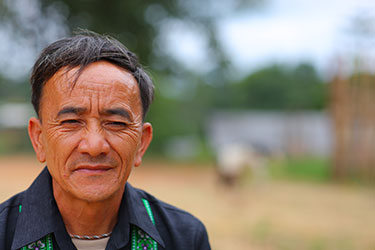No one is exempt from the health impacts of climate change, but some people are less resilient, putting them at greater risk for harm. This spring, students at five U.S. colleges took action to raise awareness of those inequities and support climate justice.
The events — held in April in conjunction with National Public Health Week — were organized by students at California State University-Northridge, the College of Saint Benedict and Saint John’s University, Grand Valley State University, Texas A&M University and the University of Colorado Anschutz Medical Campus.
The activities were supported by APHA’s Student Champions for Climate Justice Awards, presented by the Association’s Center for Climate, Health and Equity. Thanks to the awards, the students were inspired to highlight the health equity impacts of climate change, sharing information on air pollution, infrastructure, climate change, environmental hazards and more. The students hosted panel discussions, led a virtual plant walk and organized a community cleanup, among other activities.
At California State University-Northridge, students Hayley Diep and Hanli Su organized a discussion on the ways natural gas storage facilities in the San Fernando Valley area endanger the health of vulnerable residents. Check out their summary, below, and then read and share student reports from the other campuses on The Nation’s Health website.
Panel: Gas leaks at San Fernando Valley storage sites compromise health equity
On April 8, we hosted a virtual panel discussion with five stakeholders from two environmental disaster sites in the San Fernando Valley: the Aliso Canyon natural gas storage facility, which experienced a major leak in 2015, and the Valley Generating Station, which had a methane leak in 2020.
We had both been conducting research on the disaster sites and wanted to bring more awareness to these issues. Although natural gas is used in people’s daily lives, many are unaware of how it impacts them and the environment, especially when there is a leak.
We connected with five stakeholders to collaborate and continue the push for change. Our panelists featured:
• Andrew Krowne, San Fernando Valley Community Advisory Group member and developer of the Environmental Health Tracker app;
• Angelica Duenas, a member of the Sun Valley Neighborhood Council;
• Jeffrey Nordella, MD, a primary care physician in the Porter Ranch area;
• Graciela Jiminez, a promotora and community activist; and
• Noemi Romo, a community and environmental activist.
During the event, the panelists discussed how natural gas storage facilities are human and environmental health hazards, their thoughts on how the two disaster sites were handled, how the disasters impacted the neighboring communities and ways in which local residents can take action and be more informed.
Attendees were engaged and interactive during the talk and Q&A portion. Attendees included community members in San Fernando Valley as well as students and staff from California State University-Northridge. It was surprising to see how many people were learning about the Aliso Canyon blowout for the first time, even though they lived only a few miles away.
At the end of our event, we sent out a survey to gather feedback and comments on our panel discussion. There were attendees who wanted to learn how they could get involved and be updated for future events and panel discussions. “Please keep having forums like these,” one attendee said.
Attendees included David Meza, public relations representative for SoCalGas, and Christine De Rosa, a representative from the Los Angeles Department of Public Health. Our event also gained notice from the office of U.S. Rep. Tony Cárdenas, D-Calif. A field representative in the office followed up on our event with questions to learn more about natural gas.
We hope to continue to host more panel discussions like this one to keep the community informed, engaged and inspired to take action. Together, we can prevent more natural gas disasters from occurring and hold private companies and officials responsible for their actions.
— Hayley Diep and Hanli Su
The authors are students at California State University-Northridge and interns at the university’s Health Equity Research and Education Center. Read more reports from the winners of APHA’s Student Champions for Climate Justice Awards on The Nation’s Health website.
Photo by Dan_c, courtesy iStockphoto